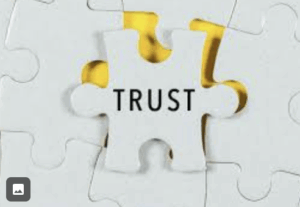In a world that is more connected than ever through technology, the increasing prevalence of loneliness may seem paradoxical. Yet, many individuals today experience profound feelings of isolation despite having access to numerous social platforms and communication tools. This blog post will explore the reasons behind the rise in loneliness, its impact on mental health, and strategies to combat this growing epidemic.
The Modern Landscape of Loneliness
Loneliness is a complex and multifaceted issue influenced by various societal and personal factors. Several trends and changes in contemporary life contribute to the increasing levels of loneliness:
1. Digital Connections vs. Real-Life Interactions
While social media and digital communication tools enable us to stay in touch with people across the globe, they can also contribute to feelings of loneliness. Digital interactions often lack the depth and emotional richness of face-to-face communication, leading to superficial connections that do not fulfill our need for genuine human contact.
2. Urbanization and Mobility
Increased urbanization and mobility have led to more transient lifestyles, with people frequently moving for work or personal reasons. This mobility can disrupt social networks and make it harder to establish and maintain long-term relationships.
3. Changing Family Structures
Modern family dynamics have shifted, with more people living alone, delaying marriage, or choosing not to have children. These changes can reduce the immediate support networks that traditionally helped combat loneliness.
4. Work Culture
The demands of modern work culture, including long hours and remote work, can contribute to isolation. Remote work, while offering flexibility, can also reduce opportunities for social interaction and lead to feelings of disconnection from colleagues.
The Impact of Loneliness on Mental Health
Loneliness is not just an emotional experience; it has significant implications for mental and physical health. Chronic loneliness can lead to:
1. Mental Health Issues
Loneliness is closely linked with depression, anxiety, and increased stress levels. The lack of social support can exacerbate these conditions and make it harder for individuals to seek help.
2. Physical Health Problems
Loneliness can also impact physical health, contributing to conditions such as heart disease, high blood pressure, and weakened immune function. Research has shown that the effects of chronic loneliness can be as harmful as smoking or obesity.
3. Reduced Life Satisfaction
Individuals who experience chronic loneliness often report lower overall life satisfaction and a diminished sense of purpose and meaning in their lives.
Strategies to Combat Loneliness
Addressing loneliness requires both personal and community-level efforts. Here are some strategies to help combat loneliness:
1. Cultivate Genuine Connections
Focus on building and nurturing meaningful relationships. Engage in face-to-face interactions whenever possible and prioritize quality over quantity in your social connections.
2. Join Community Groups
Participate in local clubs, groups, or organizations that align with your interests. This can provide opportunities to meet like-minded individuals and foster a sense of belonging.
3. Volunteer
Volunteering can create a sense of purpose and connect you with others who share similar values. It also provides an opportunity to give back to the community, which can be incredibly rewarding.
4. Seek Professional Help
If loneliness is significantly impacting your mental health, consider seeking support from a mental health professional. Individual psychotherapy can help you explore underlying issues and develop strategies to build meaningful connections.
5. Practice Self-Compassion
Be kind to yourself and recognize that feeling lonely is a common human experience. Practicing self-compassion can help reduce feelings of isolation and improve overall well-being.
6. Limit Social Media Use
While social media can be a useful tool for staying connected, excessive use can exacerbate feelings of loneliness. Set boundaries on your social media usage and focus on real-life interactions.
How Individual Psychotherapy Can Help
Individual psychotherapy is a valuable resource for those struggling with loneliness. Therapy provides a safe and supportive environment to explore your feelings, identify the root causes of loneliness, and develop effective coping strategies. Here’s how therapy can support you:
1. Understanding Underlying Issues
Therapists can help you uncover and address the underlying causes of your loneliness, such as past experiences or self-esteem issues.
2. Building Social Skills
Through therapy, you can learn and practice social skills that make it easier to form and maintain meaningful relationships.
3. Developing Coping Strategies
Therapists can provide tools and techniques to manage feelings of loneliness and improve your mental well-being.
4. Creating a Support Network
Therapy offers a consistent and reliable source of support, helping you feel less alone as you work towards building a more connected and fulfilling life.
Conclusion
The increasing prevalence of loneliness in today’s society is a complex issue that requires a multifaceted approach to address. By understanding the factors contributing to loneliness and implementing strategies to build meaningful connections, we can combat this growing epidemic and improve our overall well-being. If you or someone you know is struggling with loneliness, remember that help is available. Individual psychotherapy can provide valuable support and guidance on this journey.
At Kingston & Co Counseling, we are dedicated to helping you overcome loneliness and enhance your mental health. For more information on our services or to schedule an appointment, please contact us. We are here to support you every step of the way.







